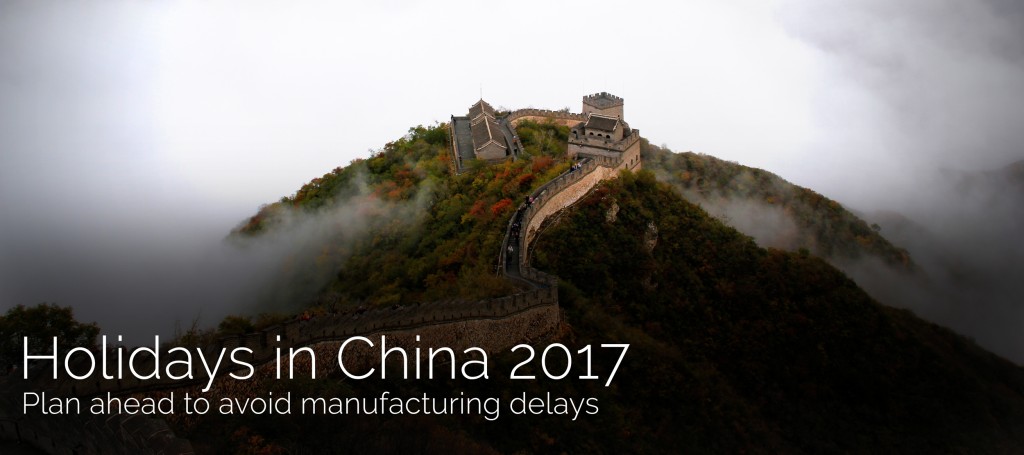If you have already business or you’re planning to start manufacturing in China, is important that you take note of the Chinese holidays to avoid any delays in your production and ensure your good will be at your destination market in time.
China has two major holiday breaks during the year: the Spring festival or Chinese New Year (CNY) and the Golden Week, in which all the businesses and factories shut down, and if you don’t adjust your manufacturing schedules or even your travel dates to China, you can encounter yourself with an unpleasant result.
We want to mention that the date may vary from business to business but are based on the official dates mentioned below:
1) New Year Break (January 1-2)
Although the Lunar New Year or Chinese New Year is the biggest celebration related to a New Year, in China is also celebrated the end of the calendar year, along with fireworks and some business closures. People will normally will take one or two days of break at the beginning of the calendar year, depending of the day of the week in which the year ended.
2) Spring Festival (January 27 – February 3)
The Spring Festival is the biggest celebration of the year, which will normally go unnoticed in the western world but it’s a major celebration in China and some other south Asia countries.
Chinese New Year, also called Spring Festival, has more than 4,000 years of history. It is the grandest and the most important annual event for Chinese people. It is important to mention that the dates change every year according to the lunar calendar but normally will be held at the end of January or beginning of February and will celebrate one of the 12 animals in the Chinese Zodiac.
Being one of the traditional festivals, it is the time for the whole families to reunite together, which is similar with Christmas Day to the westerners. Majority of the Chinese people will travel back to their home towns making it a nightmare for travelling (making this the largest human migration every year), so be aware of it if planning to travel to China during these dates, as tickets will be scarce and prices will rise considerably.
The festival lasts for 15 days from the 1st to 15th day of the first lunar month, and in folklore it starts even earlier, from the 23rd day of the twelfth lunar month. Most employees will have seven days off work, while students take one month absence from school.
It’s important to mention that for avoiding any delays in your shipments of any goods manufactured in China you must plan your manufacture ahead of these dates preferably, as all businesses will be shut and factories won’t be open for at least a week.
3) Tomb Sweeping Day (April 2-4)
Its English name is ‘Pure Brightness’ or ‘Tomb-Sweeping Day’, from which we can see that it serves as both a solar term and a traditional festival. Falling on April 4th or 5th depending of the year, it signifies the fact that the days are becoming warm and bright. It is custom in China for people to pay respect to the death.
4) Labor Day (May 1)
As a day for the working people worldwide, it was established on May 1st in 1886. In China, all kinds of jubilant assemblies and amusement activities are held in parks, theaters, and on plazas. In the evening, entertainment programs are held on TV, and some model laborers are invited to the evenings. It was established as national holiday in China in 1949.

